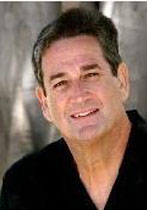By Rabbi Ben Kamin

SAN DIEGO — The problem is not what we know; it’s what we feel. We do not really know what happened: for the vast majority of us, it happened somewhere else (in the previously unknown town of Sanford, Fla.). We are relying entirely on the media with its pundits and professional oracles, unreliable 911 tapes, and a dearth of hard witnesses. We are castigated and moved by the articulate parents and their indescribable woe; they themselves (as filtered through the video imagery) appear to have put off the requisite grieving process and instead are being winged through their trauma on the strength of much previously suppressed racial anger and cynicism.
We do not particularly believe the police, given the historical track record of Southern police on such cases, and especially given the apparently forced removal of the Sanford police chief. Even that development is shrouded—it is hardly certain if the withdrawal of the chief was an expression of regret, an honorable gesture honoring the ultimate tragedy that took place, or simply a finally-released vendetta on the part of the city council.
And let’s face it: we don’t like George Zimmerman. The pulse of this longtime racially-stricken nation afflicts us both ways. Zimmerman, who remains curiously out of custody, given the fact that he indisputably fired a gunshot at point-blank range into the unarmed body of a teenager, raises a separate set of racial shackles: he is of mixed Hispanic and Caucasian ethnicity; he apparently has a history of rabid vigilantism and many of us who are not Florida residents are aghast that he was enabled by a “Stand Your Ground” law that is uniquely bizarre and is putting police-sanctioned weapons into the hands of social misanthropes.
Moreover, the roundtable discussion of this horrific incident (thick-necked citizen watchman with a previous record of overzealousness and a significant lack of sophistication, called off from pursuing the hooded black kid who’s packing some candy and absolutely no heat, nonetheless fires his weapon at the young man) only raises the temperature of our social affliction with, by, and because of race.
On one side, the police mysteriously refrain from even bringing the shooter in for actual questioning (or even protective custody, given his declared “fears for his life”.) On the other side of this bloody calamity emerges a so-called New Panther movement, its spokespersons reviving the worst elements of 1960s-style cultural intimidation, calling this country “the United Snakes of America,” demanding the hide of the suspect (oh, he’s not a suspect, I forgot), flouting any semblance of law and common sense, basically grabbing the very available microphones, outrageously pressing harder on the loose rage afoot in this nation, and making a mockery of their very understandable sense of affinity and concern.
President Obama, himself the target of inflammatory racial derision, both overt and subliminal, a man of dignity and rationality, an unassuming paragon of fatherhood and fidelity, touched many hearts when he declared: “If I had a son, he would look like Trayvon Martin.” The humanization of a tragic young man, caught in the nocturnal web of American angst, is worth more than any police audio tapes or second-guessing about what was clearly a brutal reminder: we elected a black president, but we haven’t selected a colorblind society.
*
Rabbi Kamin is a freelance writer based in San Diego. He may be contacted at ben.kamin@sdjewishworld.com